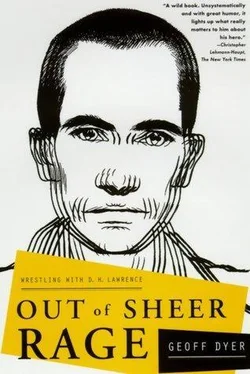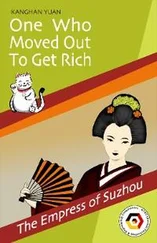‘Whatever next?’ said my plump neighbour as the train rolled on again.
Next, the guard announced that due to ‘ una interruzione fatale ’ up ahead the train would have to stop at the next station, Cisterna. For how long? Everyone piled out of the train to find out, to mill around. Information was gleaned and passed on. The fat man from our compartment proved an invaluable source of information. By now I was into the spirit of the journey, hoping for even more catastrophic developments. I was happy to mill around in Cisterna with the evening sun angling over the station buildings. Especially since I now had the opportunity to do what was utterly forbidden in England: to walk across the tracks. I was not the only one to enjoy this. One group of passengers actually went and sat on the rails. Soon everyone was scampering across the tracks on some flimsy pretext or other. The delay also provided an excellent opportunity for the use of cellular phones: up and down the platform people were dialling home, postponing dinner. Gelati were bought and licked. A football was produced and a brief game of head tennis ensued. Someone began singing: a jokey song, Laura explained, about the love of a controllore for a beautiful passenger. Essentially, everyone took the opportunity to act like Italians. This is what Italians love to do more than anything: to act like Italians. They never tire of it! Day in, day out! Young boys, teenage girls, middle-aged mothers, even old men in their eighties — especially old men in their eighties! — they all love acting like Italians.
Laura asked if I could go up into the cab of the locomotive. The driver said it was not allowed but then, since nothing in Italy is utterly forbidden, he relented and Laura took a picture of me at the controls. Next she asked the guard to pose for a photo next to me so that our fellow passengers would be in no doubt that this was what the inglesi loved more than anything: to be treated like thirteen-year-olds. We were getting a lot of photos out of the trip back but it was difficult to imagine anyone collecting and poring over them the way I had done with pictures of Lawrence.
We milled around some more. Then, suddenly, the whistle! Back on the train! Back on the train! We were on our way again — as far as the next stop, where we got off once more and milled around again until the guard got the order to proceed.
We pulled into Termini five hours late. I had no complaints. It had been such fun, getting on and off the train like the escaping POWs in Von Ryan’s Express. The hours of mild catastrophe, of milling around and posing for photographs, had engendered a lovely spirit among the passengers, especially between the people in our compartment. On the platform Laura and I shook hands with them all, affectionately, and in the right spirit. In a way I wished that we were still in transit, were heading for some more distant, hindrance-littered destination so that we could all remain together. I was sorry to leave them.
I was in a strange state when we got back to Rome, to the apartment, to the home that was not my home. I found myself wondering about the trip to Sicily, about the absence of whatever feeling it was that I’d expected to have at the Fontana Vecchia, even though I hadn’t known what that feeling was meant to be. I thought about an earlier trip I’d made, to Eastwood, that had played a decisive part in simultaneously making me want to write a study of Lawrence and in making me doubt that I ever would. I looked through the notes I had made and was surprised by the way so few of them were even about Eastwood. Laura had an interpreting job which took her out of town for a few days and I sat in the apartment in Rome, feeling sad, I suppose, missing my parents, thinking about Eastwood, about England, about Cheltenham and Algiers.
I had driven there, to the Lawrence country — north of Shakespeare’s county, south of the Brontë country, bang in the middle of motorway country — from Gloucestershire (Dyer country) in December. Two hours of motorway weather: Contraflow Showers, Lanes Merge Squalls, Delays Possible Drizzle. For several miles, just south of Birmingham, signs warned that there was ‘No Hard Shoulder’. This seemed inaccurate: there were six lanes of hard shoulder but no motorway. Cars were triple-parked in both directions. I’d hoped there might be time to stop off at Ikea near one of the Birmingham exits but with the traffic jammed solid that looked increasingly unlikely. Probably the hold-up was caused by people heading to and from Ikea. Ikea had become so successful that, while still functioning as a retail outlet, it was also a museum. People visited these furniture hypermarkets as theme parks devoted to the Ikea Experience just as they would sample the Industrial Experience at Ironbridge, or anything else from the Experiential repertory of Heritage Britain. The difference was that at Ikea you could buy the experience as it was happening, before it became history; you could experience history as it was being made, take it home in flat-packs and install it yourself. Faced with the choice I was half tempted to abandon the Lawrence Experience in favour of the Ikea Experience: it’s a recurring problem this urge to abandon what I’ve set out to do in favour of something else, not because this other option is more enjoyable but simply because it is something else. It’s something I have half a mind to address — not just in this book, but now, immediately, even though this ambition is itself symptomatic of the condition it seeks to diagnose, a diversion from the task I’d originally set myself — whatever that was. In this instance, en route to Eastwood, a trip to Ikea was a particularly pointless diversion since I didn’t have a home to put any furniture in. For the moment I was stuck with the Traffic Experience.
On either side of the motorway was a strip of grey-green countryside and then, just out of sight, another six-lane motorway: the countryside as hard shoulder. In the 1960s cities sprawled until they joined in conurbations; now motorways are following suit: since there is no longer anywhere for them to go they expand sideways, they merge. No need to travel in England any more: just wait for everything to merge.
It was almost midday by the time I merged into Eastwood. I was too irritable from the drive to go straight into the D. H. Lawrence Birthplace Museum and Gift Shop so I ordered a calming cup of tea in the White Peacock Café.
‘Mug or cup?’
‘Cup please,’ I said, thinking that I could have said ‘I said “cup”.’ I said cup because I have never enjoyed tea from a mug — and, for that matter, only rarely from a cup. Basically I don’t like tea but what else is there? Life is really no more than a search for a hot drink one likes. Compared with cold drinks (beer, fruit juices, sodas, varieties of mineral water) there is a dearth of hot drinks, I thought to myself, sipping my cup of — as it happened — rather nice tea in the White Peacock Café. There was another customer in the café, smoking. I said, ‘Hi,’ and he grunted back. I could see him looking at me, thinking I was another of those Lawrence tourists come to visit the Lawrence Museum. For my part, I too was thinking: I am behaving exactly like someone who has come to visit the D. H. Lawrence Birthplace Museum. Impossible to pass oneself off as anything else. Why else would I be drinking tea in the White Peacock Café? Why else would I be in Eastwood?
The café was heated by a two-bar electric fire with wood surround, plastic coals and a corrugated backscreen, flickeringly suggestive of flame. A song by The Who came on the radio, taking me back down the vista of the years. .
When I was twelve, we moved from our (end) terrace house to a semi-detached place on the corner of the Shurdington Road, five miles from the village where my father was born. The new house had a real (i.e. electric) fire; in the old house we had had coal fires. Some days in the old house, in November or January, I came home from school to find the living room filled with smoke. If the wind was blowing in a certain direction, or if the logs were damp, the living room would be smoky, my mother would be sitting there, waiting for me to come home from school. Winter. Dark already at four-thirty. A smoky room, my mother sitting there, my mother who is old now, who is getting older every day as she sits in the back room of the semi we moved to when I was twelve.
Читать дальше












